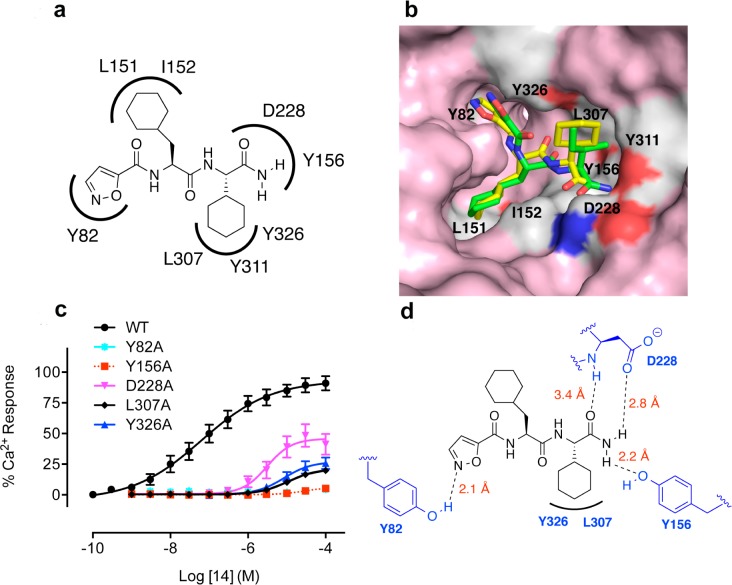Figure 2.
Predicted binding mode for agonist 14 in a PAR2 homology model derived from nociceptin/orphanin FQ receptor (pdb code 4EA3). (A) Agonist AY77 (14) is predicted to form multiple hydrogen bonds and hydrophobic interactions with PAR2. (B) Surface view of PAR2 model showing Isox, Cha, and Chg components occupying three distinct binding pockets. (C) iCa2+ responses induced by agonist 14 were significantly reduced in PAR2 mutants Y156A, Y326A, D228A, L307A, and Y82A compared to wild-type (WT), suggesting that these residues interact with 14. Each data point is mean ± SEM of 3–5 independent experiments. (D) The C-terminal amide NH2 of 14 forms hydrogen bonds with Y156 and D228. The cyclohexylglycine may make a hydrophobic interaction with L307 and the amide carbonyl of Cha may form a water mediated H-bond with Y326. Isoxazole may form a H-bond with Y82.

